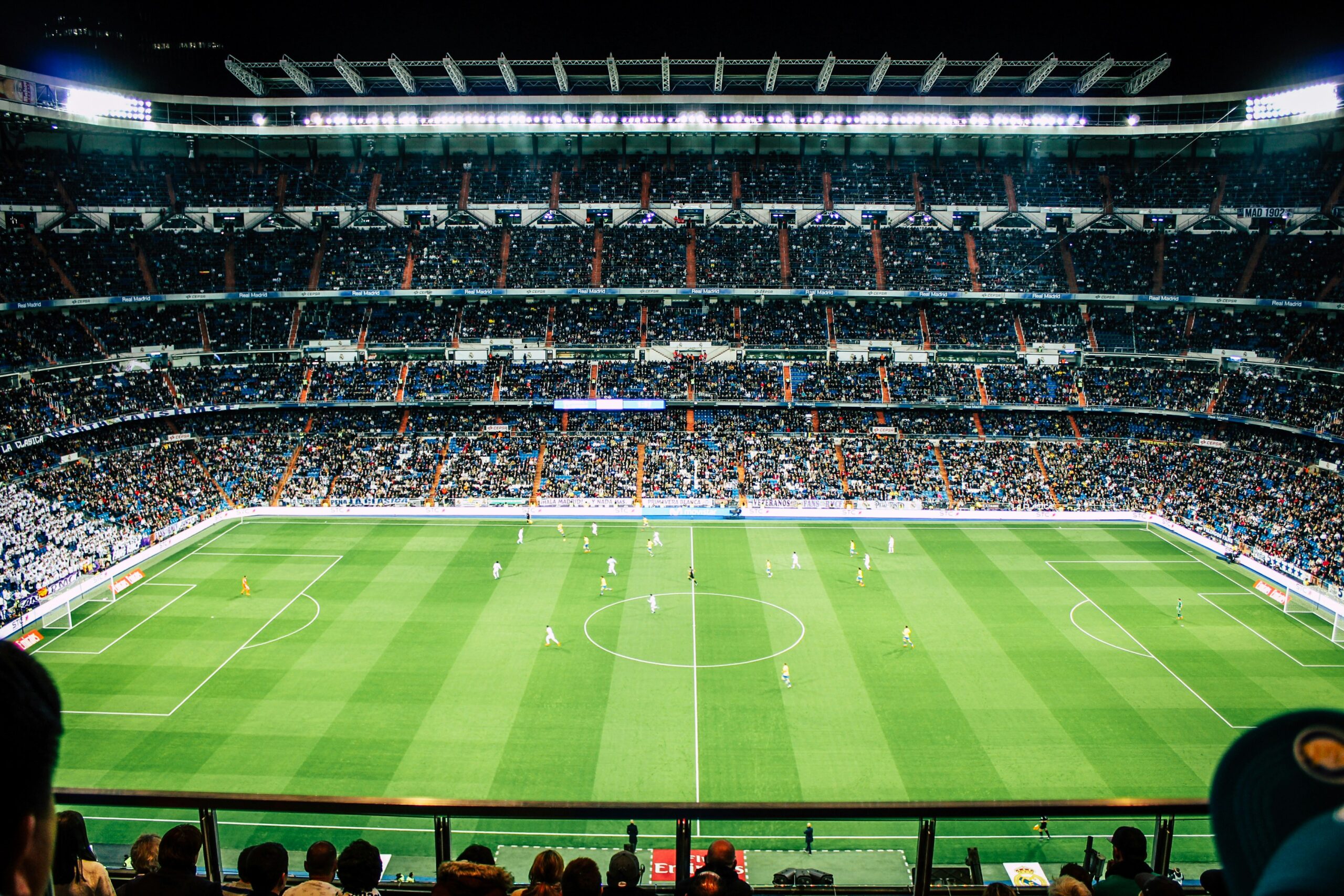Introduction to the Rivalry
The rivalry between FC Barcelona and Valencia CF is steeped in history and significance within the realm of Spanish football. This competition dates back to the early years of La Liga, where both clubs established themselves as formidable forces. FC Barcelona, founded in 1899, quickly rose to prominence with its attractive playing style and a philosophy centered around their youth academy, La Masia. Valencia CF, on the other hand, has a rich history dating back to its formation in 1919, marked by its own legacy of success and a passionate fan base.
Throughout the decades, encounters between these two clubs have produced memorable moments and intense matches that have defined their rivalry. The passion surrounding these fixtures is palpable, as each club strives to assert its dominance in La Liga. Notable matches include the Copa del Rey finals and several league clashes, where both sides have showcased their skill and tactical prowess. Key players from both teams have often been the difference-makers in these encounters, further intensifying the rivalry.
Moreover, the Valencia vs Barcelona rivalry extends beyond the pitch; it embodies a broader cultural and regional significance. Barcelona represents Catalonia, while Valencia carries the pride of the Valencian Community. This adds an extra layer of enthusiasm to their matches, as the stakes are not merely about points in the league table, but about regional honor and historical identity.
As both clubs continue to evolve in the competitive landscape of La Liga, the rivalry remains a centerpiece of Spanish football, capturing the hearts of fans and drawing attention worldwide. Understanding the history and significance of this competition lays the groundwork for appreciating the intensity and drama that follows when these two giants of Spanish football meet on the pitch.
Key Players in the Rivalry
Throughout the rich history of the Barcelona vs Valencia rivalry, numerous players have significantly impacted the outcomes of their encounters. This section highlights some of the most influential figures from both teams, showcasing their remarkable skills and contributions. Starting with FC Barcelona, legends like Diego Maradona and Ronaldinho have left indelible marks on this historic matchup. Maradona, although he had a brief stint at Barcelona, demonstrated exceptional dribbling ability and vision that forever changed the expectation from a player. On the other hand, Ronaldinho’s time at the club brought flair and creativity, leading to moments of brilliance against Valencia. His extraordinary performances during key matches solidified his status as a fan favorite.
As we transition to Valencia, players like Mario Kempes and David Villa cannot be overlooked. Kempes, a legendary forward, was instrumental in bringing Valencia success during the late 1970s and early 1980s. His ability to score crucial goals, especially in high-pressure situations against rivals like Barcelona, made him a symbol of the club. Villa, more recently, emerged as one of the top Spanish forwards, leading Valencia’s attack and contributing to their remarkable 2004 Copa del Rey victory against Barcelona. His exceptional positioning and finishing ability were pivotal in distinguishing him in this fierce competition.
In contemporary matches, players such as Lionel Messi for Barcelona and Carlos Soler for Valencia have become vital to their teams. Messi, often hailed as one of the greatest footballers of all time, has repeatedly proven invaluable in decisive moments against Valencia, exemplifying his skill with multiple goals and assists. Conversely, Soler has emerged as a central figure for Valencia, known for his playmaking abilities and strategic contributions on the field, thereby helping to maintain their competitive edge in this longstanding rivalry.
Tactics and Strategies
When examining the tactical approaches employed by Barcelona and Valencia, it is essential to understand how their formations and playing styles have been influenced by their respective coaching philosophies over the years. Barcelona is renowned for its possession-based football, often utilizing a 4-3-3 formation that emphasizes short, intricate passing and maintaining control of the midfield. This style, famously characterized by the term “tiki-taka,” is designed to overwhelm the opposition through constant movement and positional interchange, allowing for quick transitions from defense to attack. Under the current coaching regime, we see an emphasis not only on retaining possession but also on integrating younger players and maintaining a high defensive line to press opponents effectively.
On the other hand, Valencia presents a contrasting tactical philosophy. Historically adopting a more pragmatic approach, Valencia often employs a 4-4-2 formation, prioritizing defensive solidity and counter-attacking play. This strategy allows them to absorb pressure and exploit opponents’ weaknesses on the break. Recently, Valencia’s tactics have evolved to include a more flexible 4-3-3 during attacking phases, enabling them to adapt to different match situations while still maintaining a robust defensive structure. Their ability to switch formations provides tactical versatility, allowing them to match up effectively against teams like Barcelona.
The success of both clubs during their encounters often hinges on their strategic adaptations in real-time during matches. Valencia’s ability to capitalize on Barcelona’s high defensive line through quick counter-attacks can pose significant challenges. Conversely, Barcelona’s pressing game aims to disrupt Valencia’s attacking rhythm. As fans look forward to upcoming matches, understanding these tactical nuances could prove pivotal in predicting the outcome and appreciating the depth of competition between these two Spanish giants.
Memorable Matches and Highlights
The rivalry between Barcelona and Valencia has produced numerous memorable matches, showcasing the talent and competitive spirit of both teams. One particularly noteworthy encounter occurred in the 2019 Copa del Rey final when Valencia triumphed over Barcelona 2-1, marking a significant victory for Los Che. This match demonstrated the unpredictability of football, as Barcelona entered the game as favorites, having dominated Spanish football. Valencia took the lead with a goal from Kevin Gameiro, followed by Rodrigo’s strike that doubled their advantage. Despite Lionel Messi’s late goal for Barcelona, Valencia’s resolute defense secured their first Copa del Rey title in over a decade.
Another iconic clash took place during the 2000-2001 La Liga season, where Valencia stunned Barcelona with a remarkable 4-3 victory at the Camp Nou. This thrilling encounter featured a rollercoaster of emotions, as Valencia raced to a three-goal lead, only for Barcelona to mount a fierce comeback. The match featured sensational goals, including a sensational free-kick from Valencia’s Pablo Aimar and a dramatic late winner from Miguel Ángel Angulo, underscoring the ability of both teams to produce high-stakes drama.
One cannot discuss this rivalry without mentioning the infamous 2010 encounter that showcased the intensity of the competition. Barcelona and Valencia battled to a tense 2-2 draw, with controversial moments overshadowing the match. An erroneous red card shown to Barcelona’s Eric Abidal and a controversial penalty awarded to Valencia led to heated debates among players and fans alike. This match highlighted not only the skill on the pitch but also the passionate responses from both sets of supporters.
These encounters, characterized by thrilling goals, substantial shifts in momentum, and moments of pure drama, reveal why the Barcelona versus Valencia rivalry remains a highlight of Spanish football. Each match adds a new chapter to the ongoing saga of these two illustrious clubs, showcasing their enduring legacy in the sport.
Fan Culture and Atmosphere
The fan cultures surrounding FC Barcelona and Valencia are as vibrant and varied as the cities they represent. At the Camp Nou, the home ground of Barcelona, the atmosphere is electrifying, with supporters known as “culers” passionately showcasing their dedication. One of the most iconic elements of the Barcelona fan culture is the anthem “Cant del Barça,” which unites thousands in a powerful sing-along before each match. This unity fosters an environment of camaraderie, amplifying the overall experience for fans and players alike.
On the other hand, fans of Valencia CF, referred to as “ches,” exhibit an equally intense support at the Mestalla Stadium. The atmosphere here is renowned for its fervor and intensity, characterized by chants such as “Himno del Valencia” which resonates through the stands. The unique traditions of Valencia fans, including the “Mestalla roars,” not only elevate the ambiance during matches but also serve as a formidable psychological advantage for the home team.
Both clubs have a longstanding history intertwined with their communities, and the fans play a pivotal role in shaping that narrative. The passionate engagement of Barcelona supporters often translates into an unyielding home advantage, elevating the performance of the players on the pitch. Similarly, Valencia’s dedicated fanbase contributes significantly to the team’s morale and sense of identity, making it difficult for opponents to secure victory away from home. Beyond chants and songs, the collective actions of fans, such as creating choreographed displays or themed match days, further elevate the matchday experience. These aspects highlight the integral relationship between fan culture and team performance in this storied rivalry.
Recent Performance Analysis
In recent months, both Barcelona and Valencia have displayed distinctive forms in La Liga and other competitions, directly impacting their standings and expectations leading into forthcoming matches. Barcelona, historically one of the powerhouses in Spanish football, has maintained a competitive edge, consistently finding ways to secure vital points. As of October 2023, they are positioned favorably in the La Liga table, sitting in the upper tier, thanks to their impressive attacking displays and solid defensive strategies.
Statistical indicators further illustrate Barcelona’s prowess. The team has averaged over two goals per game in La Liga, showcasing a dynamic front line capable of breaking down the toughest of defenses. In contrast, Valencia, while exhibiting moments of brilliance, has struggled with consistency. Their current league standing reflects a middle-of-the-table performance, often marred by injuries to key players and tactical inconsistencies. Recent results show that Valencia has faced challenges in converting opportunities, leading to dropped points in critical matches.
Injuries have notably impacted both teams. Barcelona has experienced minor setbacks, with only a few players listed as injured, yet they have managed to navigate through these challenges effectively. Conversely, Valencia’s injury report has been more congested, leading to frequent changes in their starting lineup. This instability has affected their chemistry on the pitch, which is vital for securing victories.
Amidst the fluctuating performance levels, sentiments surrounding each team are varied. Barcelona fans are buoyed by recent successes, while Valencia supporters express concern over their team’s ability to translate potential into results. As both teams prepare for their upcoming encounters, the analysis suggests a critical juncture that may define their seasons in the competitive landscape of Spanish football.
Upcoming Fixtures and Predictions
As both Barcelona and Valencia prepare for their upcoming meetings in La Liga, football enthusiasts are eager to witness what promises to be thrilling encounters. The next scheduled match between these two Spanish giants is set for **October 21, 2023**, at the iconic Camp Nou. Following this clash, both teams are slated for a return fixture on **March 10, 2024**, at Valencia’s home ground, the Estadio Mestalla. Each match will be crucial as both clubs seek to secure vital points in their respective pursuits for domestic success.
Historically, clashes between Barcelona and Valencia have often produced exhilarating football filled with tactical battles and individual brilliance. In their last five league encounters, Barcelona managed to assert dominance, winning three times while Valencia secured one victory and one match ended in a stalemate. These statistics may influence the outlook for the upcoming fixtures. Barcelona’s attacking prowess, led by their star forwards, will present a significant challenge to Valencia’s defense, which has been solid but vulnerable against top-tier teams.
Analyzing both teams’ current form, Barcelona appears to be in fine touch, showcasing a blend of experienced players and promising young talents. Their ability to maintain possession and create scoring opportunities might prove decisive. On the other hand, Valencia has demonstrated resilience, especially in their recent matches against lower-ranked teams, thereby building their confidence. Key players from Valencia will need to step up, particularly in midfield, to disrupt Barcelona’s rhythm and capitalize on any counter-attacking chances.
Expert opinions suggest that while Barcelona has the upper hand in terms of squad depth and form, Valencia’s tactical discipline cannot be underestimated. Fans and pundits alike are gearing up for an intense showdown, where the outcomes could significantly influence the race for La Liga. Both matches are bound to be pivotal, making the anticipation surrounding them all the more palpable.
Impact on Spanish Football Landscape
The rivalry between FC Barcelona and Valencia CF has profound implications for the landscape of Spanish football. Their matches not only represent fierce competition on the field but also significantly influence the overarching narratives within La Liga. Each encounter between these two Spanish giants carries weight in shaping the dynamics of the title race. Historically, the outcomes of these clashes have often determined the fortunes of both clubs in their pursuit of league dominance.
Barcelona, established as one of the premier clubs in Europe, routinely vies for top honors in La Liga and the UEFA Champions League. Valencia, with a rich heritage, is equally ambitious, aiming for European glory as well. When these clubs face off, the implications extend beyond a single match; results can alter momentum for the remainder of the season. A victory for Valencia may bolster their confidence and propel them toward challenging for European spots, while a win for Barcelona typically reaffirms their championship aspirations.
The financial ramifications of their rivalry are also noteworthy. High-stakes matches attract significant viewership both locally and internationally, translating into a surge in television ratings and increased matchday revenue. Additionally, such high-profile confrontations amplify the clubs’ visibility to prospective sponsors, enhancing their commercial prospects. This financial aspect plays a critical role in maintaining competitiveness within the league, as well-resourced clubs are better equipped to attract top talent, further amplifying their chances of success in domestic and European competitions.
Ultimately, the Barcelona vs Valencia rivalry is a significant contributor to the culture of Spanish football. It enriches the league’s narratives, provides thrilling entertainment to fans, and influences the financial viability of both entities within the competitive arena of football. The outcomes not only resonate with immediate implications but also set the stage for future seasons, underlining the importance of this historic rivalry in shaping the overall landscape of Spanish football.
Conclusion and Future Outlook
The enduring rivalry between FC Barcelona and Valencia CF has consistently provided football enthusiasts with thrilling matches and significant moments in La Liga history. This examination of the two clubs reveals not only their competitive nature but also the profound impact they have on Spanish football culture. The performances and developments of both teams have evolved through changing management styles, player transfers, and fan engagement, which are all crucial dynamics to consider as we look toward the future.
As the landscape of Spanish football continues to shift, both Barcelona and Valencia are poised to face new challenges that could shape their rivalry in unexpected ways. The introduction of emerging talents into both squads is likely to inject fresh energy into this longstanding contest. For Barcelona, the integration of youth players from their famed La Masia academy could revitalize the squad while maintaining the club’s storied tradition of playing attractive football. Valencia, on the other hand, may seek to leverage its own academy in nurturing young stars, aiming to bolster their competitiveness against heavyweight opponents.
Management strategies will also play a significant role in determining future outcomes. Potential changes in coaching staff at either club could lead to different tactical approaches, affecting match outcomes and overall team performance. The prospect of managerial shifts introduces an element of unpredictability, which only adds to the excitement surrounding this rivalry.
In conclusion, the clash between Barcelona and Valencia remains a captivating narrative within Spanish football. As we anticipate upcoming seasons, watching how these teams adapt to new circumstances and emerge from evolving dynamics will be essential. Fans will undoubtedly remain engaged, eager to witness how this rivalry continues to develop, and the new chapters it will create in the annals of football history.



